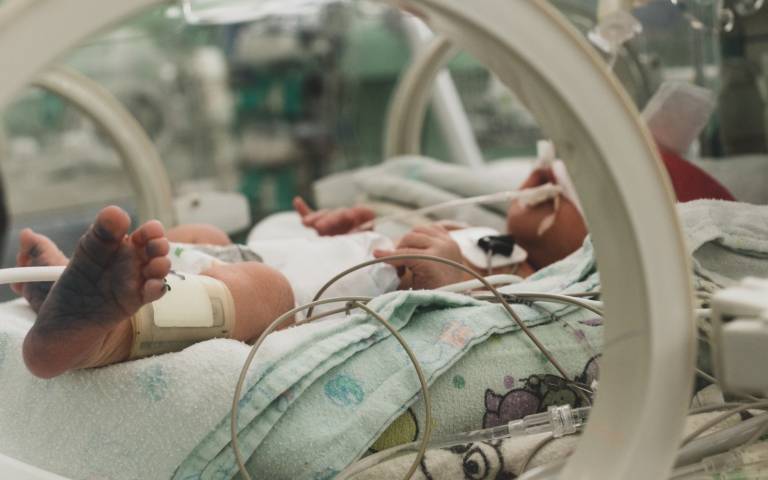New £2.6m centre seeks to improve care for critically ill
24 July 2020
Scientists at a new UCL centre will use tools such as machine learning to analyse intensive care data from two London hospitals to find clues that will improve the care of critically ill adults and babies.

Researchers at CHIMERA (Collaborative Healthcare Innovation through Mathematics, EngineeRing and AI) will examine anonymised data from 40,000 patients at University College London Hospital (UCLH) and Great Ormond Street Hospital (GOSH), to develop a better understanding using mathematical modelling of how people’s physiology changes during ill health and recovery. This new understanding will in turn provide new ideas for how critically ill patients can best be cared for.
Areas of focus are expected to include mapping Covid-19’s effect on the physiology of critically ill patients, but also looking for early warning signs for sepsis – a condition that causes one in five deaths globally – and finding new ways to spot patients who are about to deteriorate rapidly.
Professor Rebecca Shipley (UCL Mechanical Engineering), Director of UCL Institute of Healthcare Engineering and co-lead of CHIMERA, said: “This is a unique opportunity to apply new tools in machine learning and mathematical modelling to a rich, unused dataset, helping to improve care for the people who need it most.”
CHIMERA’s partner hospitals store data collected every few seconds from monitors for patients in intensive care, such as heart rate, blood pressure, oxygen levels and temperature. Only a brief snapshot of this data is used to inform decisions around patient care at the moment.
Researchers at CHIMERA will analyse this complex array of data using tools from data science and machine learning, and then use this to develop new mathematical models of how our body is behaving during ill health and recovery, with the aim of improving care.
The centre, scheduled to start in October, will bring together mathematicians, statisticians, computer scientists, clinicians and engineers. It is part-funded by a £1.2m grant from EPSRC, and is a partnership with two NHS trusts, UCLH and Great Ormond Street Hospital (GOSH). The rest of its £2.6 million funding comes from UCL, UCLH and GOSH.
Dr Steve Harris (UCL Medicine), consultant in critical care at UCLH, said: “There is a huge range of patient data that clinicians are currently unable to use. The numbers generated by monitors are influenced by a host of factors and we do not have the tools to make sense of them fully.
“With a wider view of the patient’s state from the full electronic health record, and with modern machine learning and data science tools, we believe we can see the signal through the ‘random’ noise to generate better outcomes for patients.”
Professor Mark Peters (UCL Institute of Child Health), a paediatric intensive care consultant at GOSH, said: “Clinicians rely on a brief snapshot of patient data to inform their decisions about care. Much of the information we collect is therefore left unused.
“With CHIMERA, we can fully investigate this extensive dataset, looking at trends over time and the relationships between different variables. As well as allowing more meaningful use of the data, it may enable us to personalise our care, tailoring it to individuals.”
Professor Christina Pagel (UCL Mathematics), Director of the Clinical Operational Research Unit and co-lead of CHIMERA, said: “Making full use of the data requires a completely multidisciplinary approach, with data scientists and computer scientists working alongside mathematicians, clinicians and engineers.
“Current physiological models that are used to inform clinical decision-making come from extensive testing of animals in the early and mid-20th century. By combining real-life data with the latest analytical tools and mathematical models, we believe we can update the evidence base for the 21st century.”
Links
- Professor Christina Pagel’s academic profile
- Professor Rebecca Shipley’s academic profile
- Dr Steve Harris’s academic profile
- Professor Mark Peters’s academic profile
- UCL Institute of Healthcare Engineering
- UCL Mechanical Engineering
- UCL Engineering
- Clinical Operational Research Unit
- UCL Mathematics
- UCL Medicine
- UCL Medical Sciences
- UCL Institute of Child Health
- UCL Population Health Sciences
- GOSH
- UCLH
Media contact
Mark Greaves
Tel: +44 (0)7539 410 389
Email: m.greaves [at] ucl.ac.uk
 Close
Close

